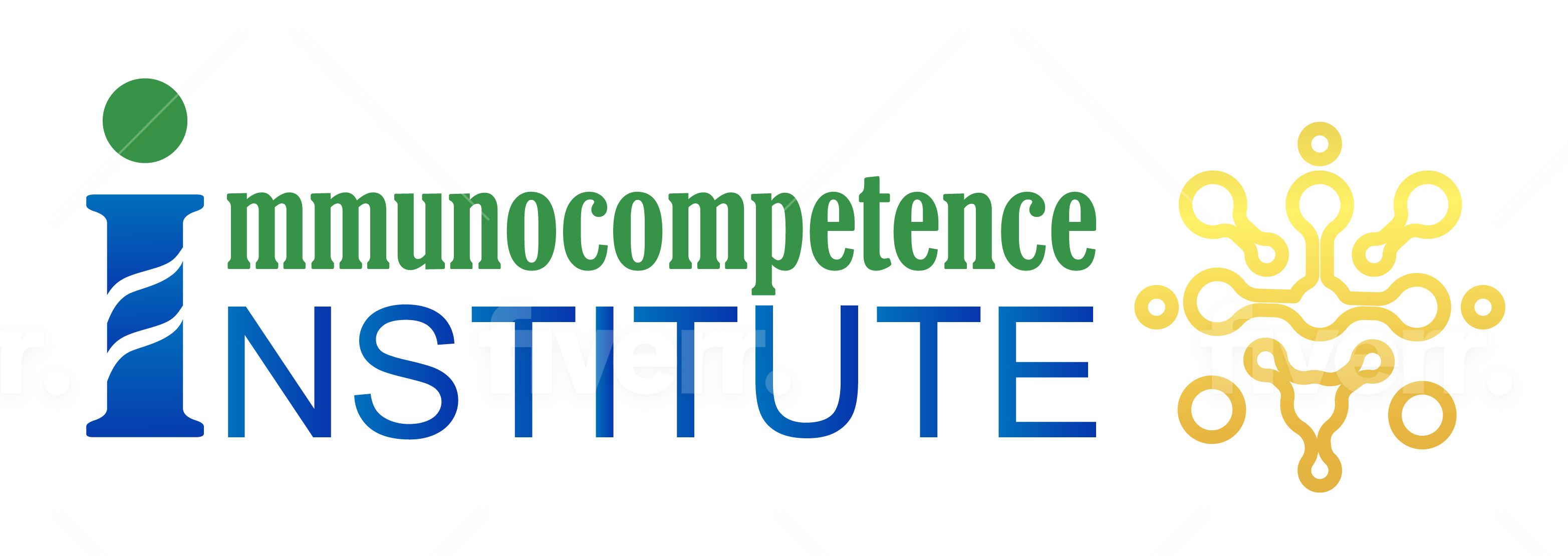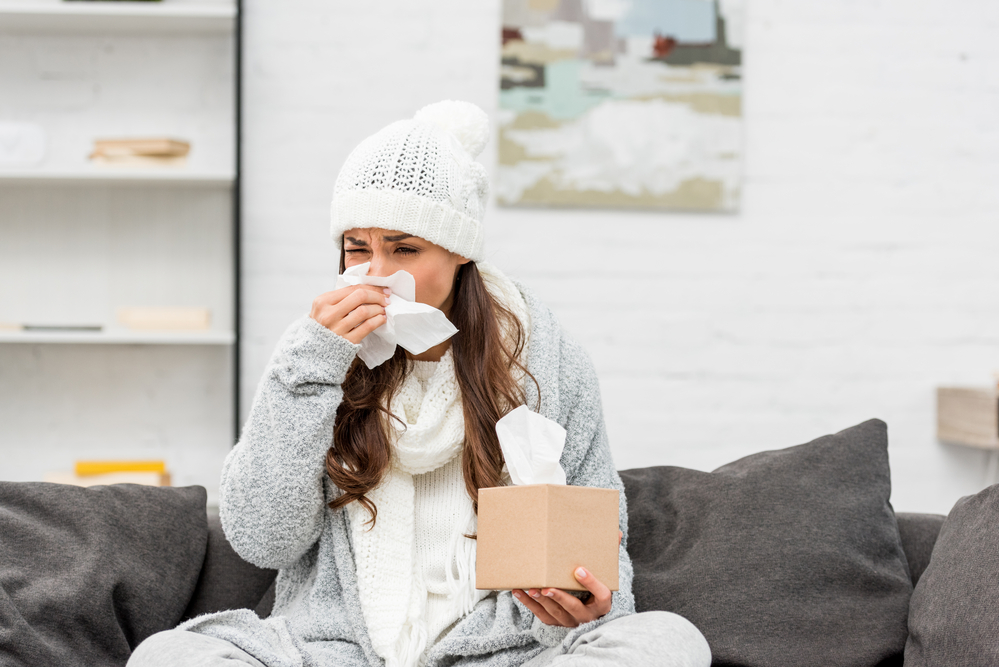It’s hard to avoid falling prey to the cold and flu season. From chills to coughing, sneezing, and sore throats, we tend to get sick more often. Winter is also the time when our body starts producing less vitamin D due to a lack of sunlight.
And, vitamin D keeps our immune system functioning properly.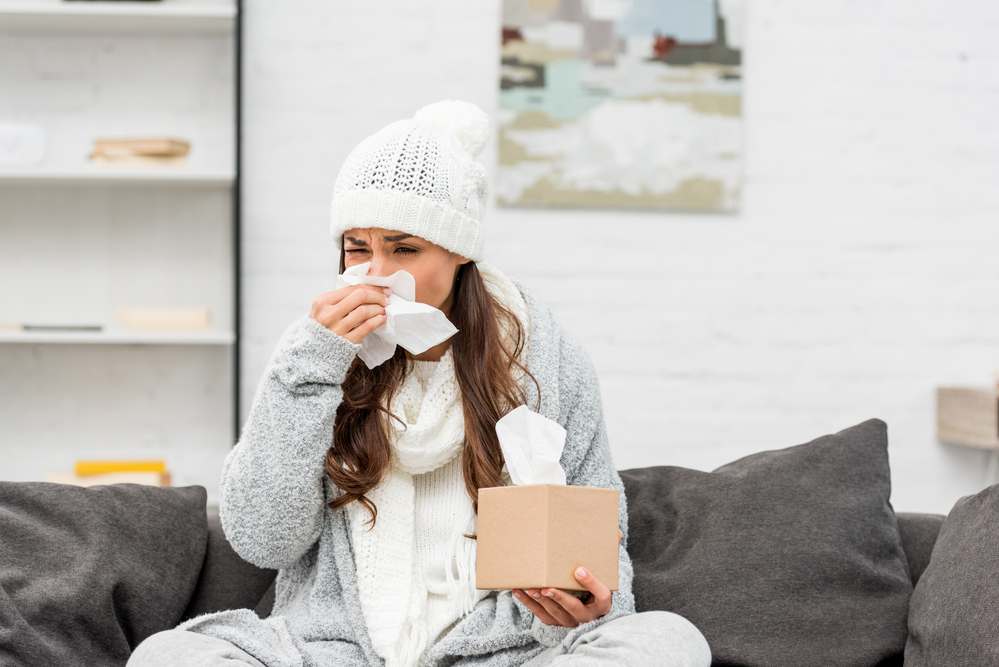
One way to boost your immune system is to lower your stress levels. Why is this important? Because when your stress level is high, it takes your immune system offline. Your body will be doing everything it can to deal with the stress. This leaves less energy to fight off pathogens. If you don’t take care of yourself, it’s much easier to end up sick in the winter.
Getting sick could lead to something much worse.
You will need all the help you can get fighting off pathogens during the winter months. Finding ways to keep your stress levels low and your immune system boosted is the key to cruising through the winter months feeling healthy and vibrant.
So what can you do to help keep your immune system strong during the winter months?
Getting vitamin D from the winter sun
One of the best ways to boost your immune system during the cold season is to make sure that you’re getting enough natural vitamin D. That comes from the sun.
That’s why even in the middle of January, I love to take a quick walk on the beach in the morning. The weather is usually in the mid-60’s, light breeze, a little chilly (which is not bad), and most importantly, with plenty of sunshine.
If you have a nice sunny day, why don’t you grab a chair or a bench and sit outside for 10 or 15 minutes? Soak up some of that winter sun.
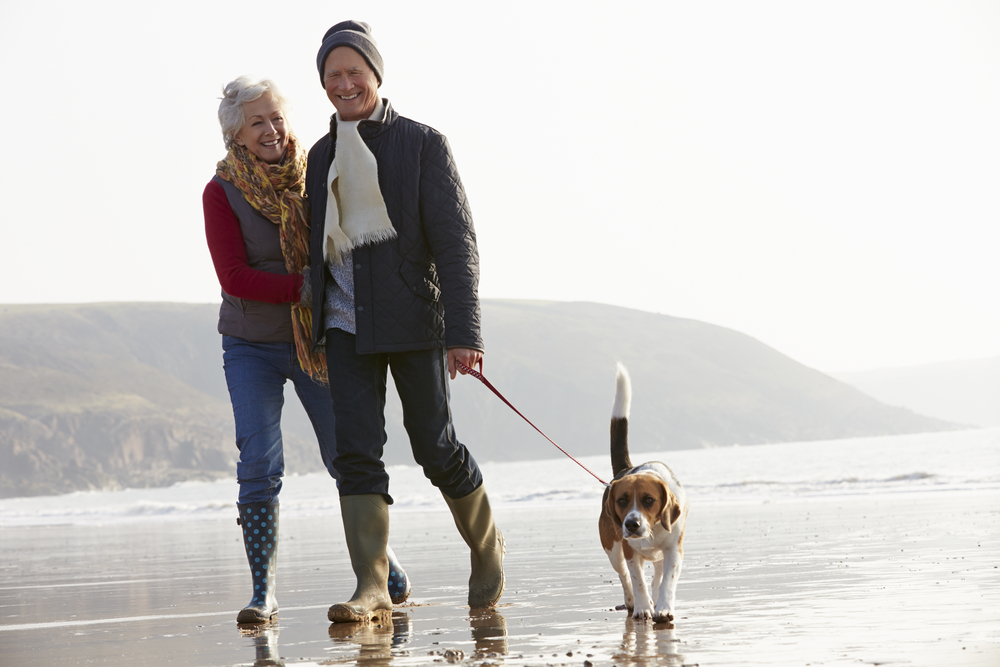 The good thing about the winter sun is that you will have fewer issues with potential sunburn. The sun is not as strong, but you will be surprised at how it will brighten your day in more ways than one.
The good thing about the winter sun is that you will have fewer issues with potential sunburn. The sun is not as strong, but you will be surprised at how it will brighten your day in more ways than one.
How about if the sun is missing in action?
Some people experience Seasonal Affective Disorder (SAD). This occurs when the body’s natural circadian rhythm is disrupted due to a lack of sunlight during the winter months. SAD causes depression and other mood disorders such as anxiety, irritability, fatigue, and sleep disturbances. People who suffer from SAD may experience symptoms like decreased appetite, weight loss, and an increased desire to sleep.
Using white light helps a little with this disorder. However, one solution that you can use to get some of the same frequencies of light that you get from the sun is by using red light therapy.
Red light therapy is a form of phototherapy which uses red light in treating depression, anxiety, insomnia, and other mental health conditions. The treatment consists of exposing patients to bright light at wavelengths between 600 and 700 nanometers. This wavelength is known to be effective in increasing serotonin levels in the brain. The treatment has been used for decades, but recently gained popularity due to the rise of smartphones and apps like Headspace.
Red light therapy is simply a specific light frequency that resonates really nicely with your cells and supports your body’s natural healing process.
Our body works on frequencies. Everything runs on specific frequencies. When we introduce a beneficial frequency into our body, our cells wake up and say, “Oh, I remember that. That’s the frequency that aligns with turning this on.”
At this time, ‘this’ would be our immune system. If we are living a high-stress experience, then we can turn our immune system on by down-regulating our nervous system and up-regulating our parasympathetic response. This is known as our natural relaxation response.
We regularly recommend tools to regulate the nervous system, but stress will un-do our efforts quickly. When we’re stressed, our nervous system is in “fight or flight” mode.
Introducing the beneficial frequencies will remind your body what you want it to do. In this case, initiate the healing response. That’s not enough. You also need to work on reducing stress.
Catching negative ions to reduce stress levels
 One of the ways to mitigate the stress that builds in our lives is to catch negative ions at the beach. This is another reason why a quick walk on the beach even in the middle of January is simply great.
One of the ways to mitigate the stress that builds in our lives is to catch negative ions at the beach. This is another reason why a quick walk on the beach even in the middle of January is simply great.
If you don’t have easy access to the beach where you can walk when it’s convenient for you, don’t worry. Negative ions don’t only exist on the beach.
Negative ions are found in nature, such as in rainbows, clouds, and oceans. They are also found in some places like spas, where they are used for relaxation purposes.
The idea behind negative ion therapy is that negative ions can be absorbed through the skin and enter the body. Once inside the body, these ions interact with the cells, which causes them to relax. This process has been proven to relieve stress and anxiety.
According to WebMD, when negative ions enter our bloodstream, they produce biochemical reactions which increase levels of the mood-boosting chemical serotonin. This then helps ease depression, relieve stress, boost our daytime energy, and improve sleep quality.
Other ways to reduce stress when a walk on the beach isn’t possible
1. Using the treadmill for walking
One alternative that I use when the weather isn’t cooperating, is a treadmill desk. If you don’t have much access to nature, use your treadmill and walk. Many people, especially those who are working in offices, don’t have a lot of opportunities to walk outside.
A treadmill desk is the answer!
It allows you to go back and forth between sitting at a desk and walking on the treadmill. This equipment is helpful because rather than just sitting in your chair at your desk, you are able to move. This could make you feel less stressed. You will notice that your body will feel better. Doing this will make a big difference in your life.
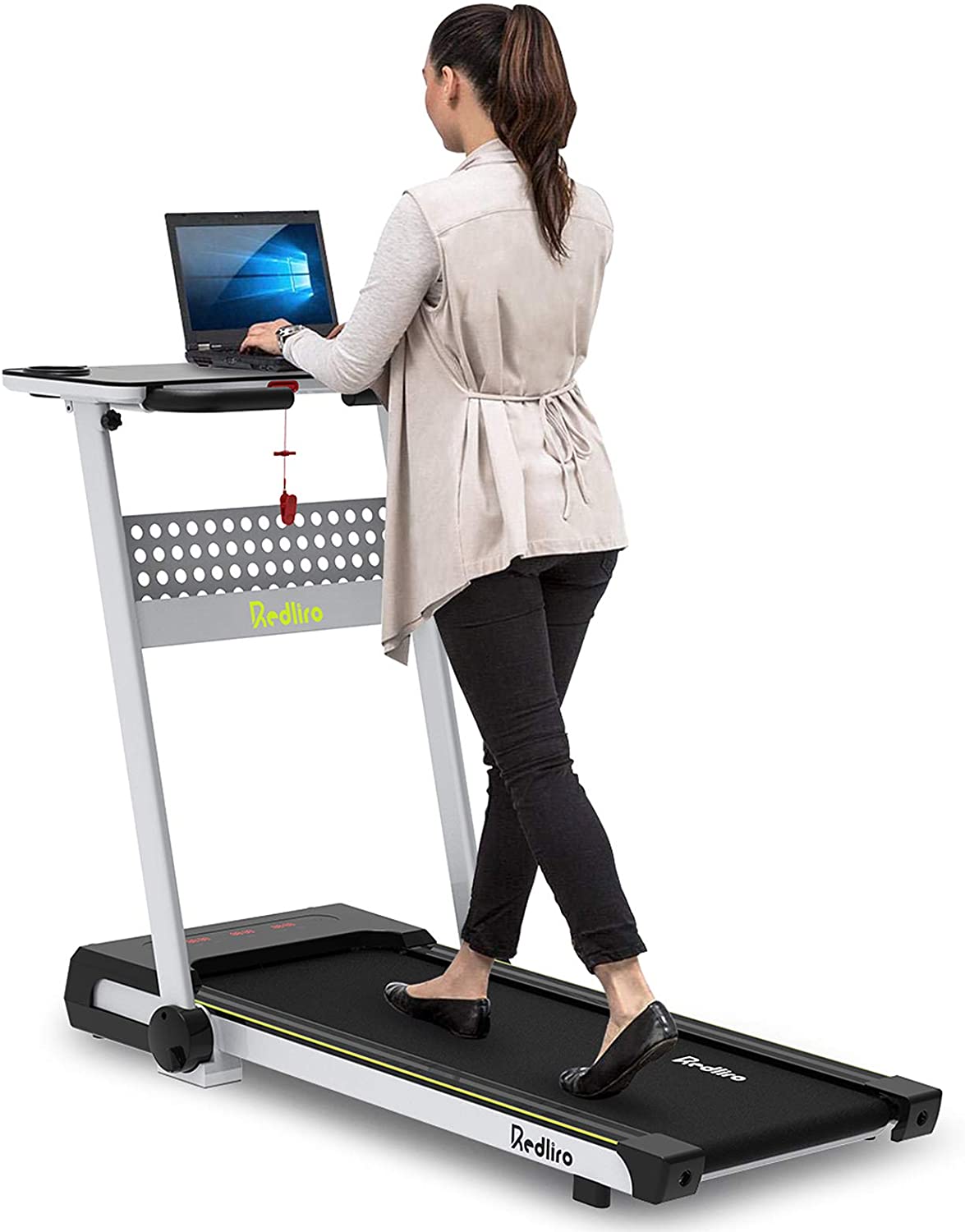 Photo Credits: Ubuy
Photo Credits: Ubuy
If you don’t have exercise equipment at home, you can opt to walk around the block or do other low-impact activities. The important thing is to get your body moving.
The chiropractor we used where we lived previously would say, “Motion is lotion.” Motion provides lubrication and recharges your human battery. If you’re wondering what I mean by your human battery, I created a post that should help.
Even if you’re just walking, the movement will keep your energy flowing. Once your energy is flowing, all the other things that you’re doing to offset stressors and toxins in your life will work better. Your body can do what it needs to do. Just get things moving in whatever way works for you.
Make sure that you have one or two activities that you can do that are going to work when you feel like your stress is rising and your immune system is starting to get compromised. You should have easy access so that there are few barriers to implementation.
2. Stretching
Another alternative to walking on the beach is stretching. Simply get down on the floor on a towel or a mat and do some stretching. This works wonders, especially when you don’t feel like you’ve got the energy to do anything else. Stretching can make you feel much better and make a lot of difference for you.
3. Napping
Another thing you can do, if you feel like stretching or walking aren’t working or you really just feel like you’re dragging, is to take a nap. If you’re feeling nappy and you could use some extra healing juice, there’s nothing better than a nap. This will help you recharge your batteries and allow your body to completely shut down for a few minutes … and reboot.
4. Meditation
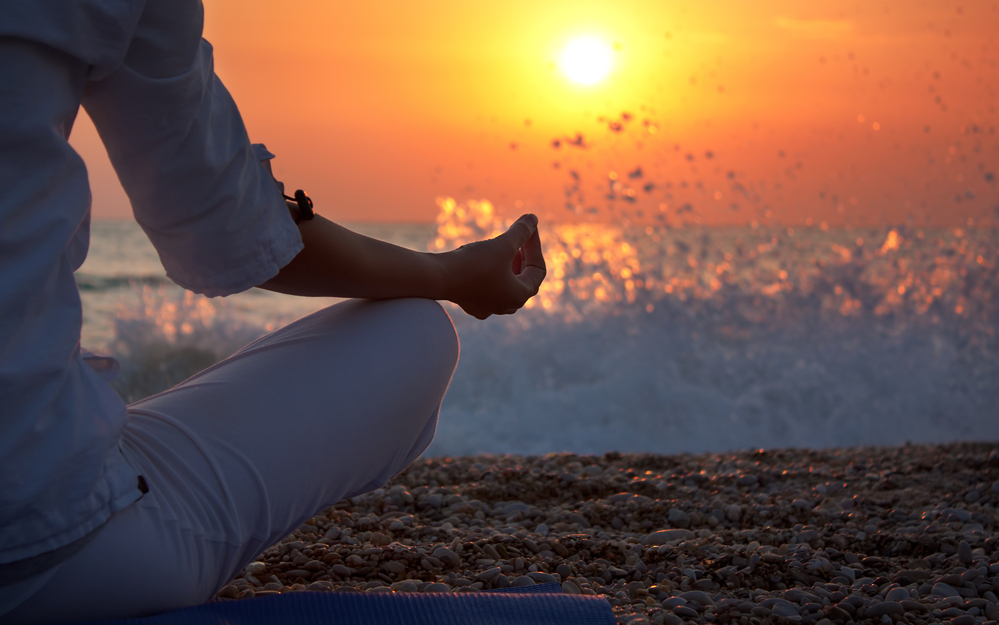 Meditation is another great option This is the tried and true backup plan. This is the best thing you can do if you can’t get outside for some sunshine, don’t have a treadmill, feel like stretching is going to be too painful, and napping doesn’t work.
Meditation is another great option This is the tried and true backup plan. This is the best thing you can do if you can’t get outside for some sunshine, don’t have a treadmill, feel like stretching is going to be too painful, and napping doesn’t work.
Meditation will help you get the job done. Remember, what you’re trying to do here is soothe your nervous system, reduce your stress levels, and reap all the benefits. When you meditate, you focus on your breathing and you let your mind relax. This is a great way to clear your head and encourage your mind and body to calm down.
